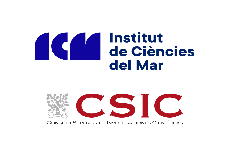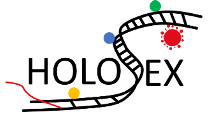

Jorge Fernandes
2024-2027 HOLOSEX: A timely holoepigenomic approach to unravel the sexual dimorphism of the immune response in fish. Spanish Ministry of Science and Innovation (317,500 EUR, Ref. PID2023-146286OB-I00). Joint project leader
2024-2027 EPIBROOD: Intergenerational epigenetic effects in Norwegian salmon aquaculture. Norwegian Seafood Research Fund (15,000,000 NOK, Ref. 901923). Work package leader.
2024-2028 BLOWOMICS: Novel perspectives on non-invasive cetacean research using microRNA biomarkers in the exhaled breath. Research Council of Norway (10,000,000 NOK, Ref. 343348). Work package leader.
2023-2024 EPISELECT: Feasibility of a multi-panel of epigenetic markers of fish growth. ERC Proof of Concept Grant. European Research Council (150,000 EUR, Ref. 101081935). Project leader.
2022-2026 EPICOD: Novel insights into the epigenetic landscape of puberty onset in Atlantic cod. Research Council of Norway, HAVBRUK programme (12,000,000 NOK, Ref. 336112). Project leader.
2022-2026 TOXIGEN: Reproductive toxicity and transgenerational effects of petroleum mixtures in fish. Research Council of Norway (12,000,000 NOK, Ref. 324768). Work package leader.
2021-2024 BREEDFLAT: New approaches on the dietary-effects in broodfish: the role of nutrition on sustainable production of flatfish. EEA and Norway Grants (755,773 EUR). Work package leader.
2021-2025 COOLFISH: Improving Atlantic salmon health and welfare by metabolic programming Research Council of Norway, FRIMEDBIO programme (12,000,000 NOK, Ref. 325571).
2021-2024 NORBRAQUA: Cooperation between Norway and Brazil in research and education for improved breeding in sustainable aquaculture. Research Council of Norway, INTPART programme (2,666,000 NOK, Ref. 310103). Project leader.
2018-2020 EPIMARK: Commercial feasibility of a kit for the identification of epigenetic markers in farmed fish. ERC Proof of Concept Grant. European Research Council (Ref. 812986, 149,203 EUR). Project leader.
2016-2022 EPIFISH: 2016-2020 EPIFISH: Innovative epigenetic markers for fish domestication. ERC Consolidator Grant, European Research Council (Ref. 683210, 1,995,000 EUR). Project leader
Main Recent Research Projects
EPIFISH: Innovative Epigenetic Markers
for Fish Domestication
Aquaculture is the fastest growing food production sector in the world, since there is an increasing demand for fish protein to feed a growing global population, which cannot be met by fisheries. In order to ensure the sustainability of this sector it is critical to domesticate and selectively improve the major commercial fish species.
EPIFISH is a timely project that will address fish domestication and selection from a new perspective using a multidisciplinary approach. The rapid pace of substantial phenotypic changes during adaptation to new environmental conditions in fish undergoing domestication raises the hypothesis that epigenetic mechanisms are involved in this process. Thus, the overarching aim of EPIFISH is to ascertain the importance of epigenetics in fish domestication using the Nile tilapia (Oreochromis niloticus) as model species.
The project outcomes will provide novel mechanistic insights into the role of epigenetics in fish domestication, which will surely open new horizons for future frontier research in epigenetics, namely transgenerational inheritance and nutritional epigenetics.




NORBRAQUA will establish a long-term cooperation between Norway and Brazil in research and research-based education in aquaculture through reciprocal mobility stays of graduate students, joint student supervision, development of a freshwater aquaculture module at the MSc level and organisation of a workshop in selective breeding and fish reproduction. The academic institutions involved are Nord University, Universidade Estadual de Londrina and the Brazilian Agricultural Research Corporation, which is the largest research institute in animal production and agriculture in Brazil. In addition, NORBRAQUA will have a strong collaboration with the aquaculture industry through two leading fish breeding companies, namely GenoMar and AquaBel.

TIn vertebrates, sex is an essential determinant of the immune response: females and males have different susceptibilities to diseases where epigenetic mechanisms play a relevant role. For fish, there is little data on epigenetic responses related to sex and the immune system.
The primary goal of HOLOSEX is to enhance our understanding of sex-dependent epigenetic mechanisms resulting from successive infections and develop biomarkers through holoepigenomic approaches to enhance aquaculture production. We will use two teleost fish species: the European sea bass (Dicentrachus labrax), a relevant commercial species in Spain and Europe, and zebrafish (Danio rerio), as animal model.